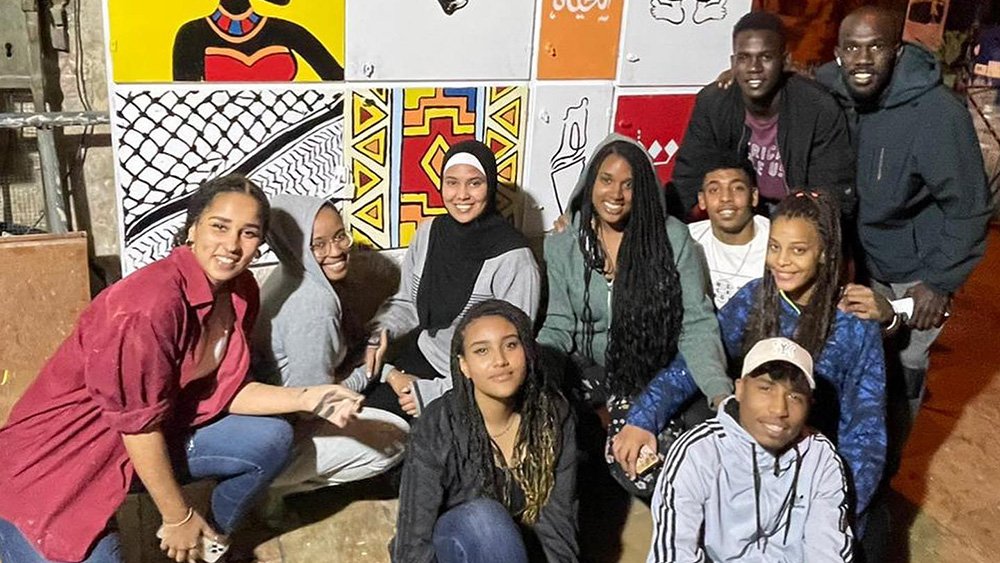Mousa says the Afro-Palestinian community faces the same challenges as the rest of the Palestinian community—precarious citizenship, high rates of incarceration, continual surveillance through hundreds of “security” cameras, harassment from settlers, and violence from the military. Mousa’s cousin is currently serving a 17-year sentence in prison, while Mousa himself was jailed for five years for helping distribute food during the First Intifada in 1987. He served some of that time in the same prison as his brother.
While he was there, Mousa vowed to dedicate his time to continue building his community and helping it flourish. The original incarnation of the ACS was called the Sudanese Welfare Club, which Mousa launched with friends in 1965. “Our activities revolved around sport, particularly boxing,” Moussa says. “One of our members was the champion of the entire Kingdom of Jordan.”
The organization folded when Israel occupied East Jerusalem in 1967, but Mousa reestablished the club in 1976 under the name African Youth Club. “We had lots of different activities, like art, sport, music,” Moussa says. “And we had our own soccer team.” After a few years, the African Youth Club was forced to close. Their headquarters needed renovating, and they didn’t have the funds to cover the required work. But then they reached out to the late Faisal Husseini, a prominent and respected Palestinian leader among Jerusalemites at that time, and he helped them renovate the club so they could launch the ACS in 1983. “Since then, we’ve provided services for women, children, and youth in Jerusalem,” Mousa says.













